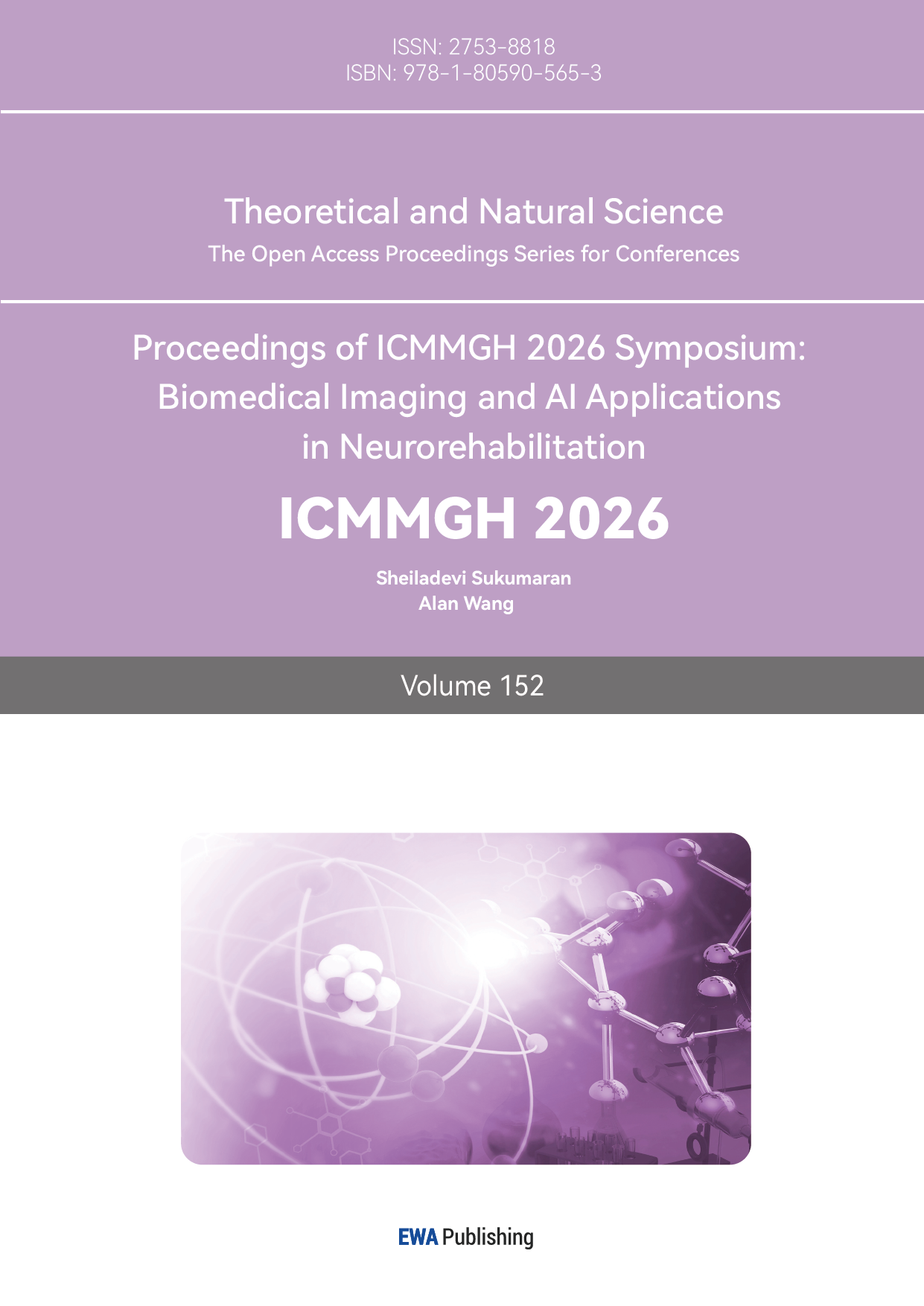References
[1]. Liu Yunqi, Zhang Dong, Gao Linzhi, et al. Research Progress on the Role of Small Activating RNA in Common Gynecological Malignant Tumors [J/OL] Modern Medicine and Health, 1-9 [2025-09-27].
[2]. Zou Y, Xu Y, Chen X, Zheng L. Advances in the application of immune checkpoint inhibitors in gynecological tumors. Int Immunopharmacol. 2023 Apr; 117: 109774.
[3]. Gulinigar Toheniyazi, Du Rong. Research Progress on the Immune Regulatory Mechanism of cervical HPV infection [J]. Chinese Journal of Family Planning and Obstetrics and Gynecology, 25, 17(09): 48-52.
[4]. Lo Cigno I, Calati F, Borgogna C, et al. Human Papillomavirus E7 Oncoprotein Subverts Host Innate Immunity via SUV39H1-Mediated Epigenetic Silencing of Immune Sensor Genes. J Virol. 2020 Jan 31; 94(4): e01812-19.
[5]. Wang W, Bi X, Feng Y, et al. Efficacy and Safety of Immune Checkpoint Inhibitors on Advanced Cervical Cancer: A Systematic Review and Meta-analysis. J Immunother. 2025 Feb-Mar 01; 48(2): 78-88.
[6]. Tewari KS, Colombo N, Monk BJ, et al. Pembrolizumab or Placebo Plus Chemotherapy With or Without Bevacizumab for Persistent, Recurrent, or Metastatic Cervical Cancer: Subgroup Analyses From the KEYNOTE-826 Randomized Clinical Trial. JAMA Oncol. 2024 Feb 1; 10(2): 185-192.
[7]. Post CCB, Westermann AM, Bosse T, Creutzberg CL, Kroep JR. PARP and PD-1/PD-L1 checkpoint inhibition in recurrent or metastatic endometrial cancer. Crit Rev Oncol Hematol. 2020 Aug; 152: 102973.
[8]. Mestrallet G, Brown M, Bozkus CC, Bhardwaj N. Immune escape and resistance to immunotherapy in mismatch repair deficient tumors. Front Immunol. 2023 Jul 10; 14: 1210164.
[9]. Lu Qiaoying, Zhao Hongbo, Chen Xiaojun. Advances in Immune Regulatory Mechanisms of the tumor microenvironment of endometrial cancer [J]. Journal of Fudan University (Medical Science), 2016, 43(04): 475-478.
[10]. Zhao Linlei, Wang Ting, Feng Chaohui, et al. The correlation between CD4+CD25+Treg, IL-10, TGF-β levels and the occurrence and development of endometrial cancer [J]. Chinese Journal of Eugenics and Child-rearing, 2012, 18(04): 237-240.
[11]. Barber EL, Chen S, Pineda MJ, Robertson SE, Hill EK, Teoh D, Schilder J, O'Shea KL, Kocherginsky M, Zhang B, Matei D. Clinical and Biological Activity of Chemoimmunotherapy in Advanced Endometrial Adenocarcinoma: A Phase II Trial of the Big Ten Cancer Research Consortium. Cancer Res Commun. 2022 Oct; 2(10): 1293-1303.
[12]. Lee EK, Xiong N, Krasner C, Polak M, Campos S, Wright AA, Liu JF, Shea M, Yeku O, Castro C, Porter R, Stover EH, Koppermann L, Smith J, Sawyer H, Hayes M, Zhou N, Cheng SC, Bouberhan S, Pfaff KL, Rodig SJ, Jones S, Penson RT, Moroney J, Fleming GF, Matulonis UA, Konstantinopoulos PA. Phase 2, two-stage study of avelumab and axitinib in patients with mismatch repair proficient recurrent or persistent endometrial cancer. Gynecol Oncol. 2025 Jul; 198: 1-8.
[13]. Chen Junchen, Peng Yanzhen, Cheng Jiumei. Research Progress on the Immune Escape Mechanism of Ovarian Cancer [J]. Chongqing Medical Journal, 2022, 51(10): 1769-1773.
[14]. Ji Chunya, Bushalaimu Muhamai, Pu Jiawen, etc. Research Progress on the Function and Mechanism of Natural Killer Cells during Immune Escape in Ovarian Cancer [J] Journal of Clinical Oncology, 2024, 29(07): 720-725.
[15]. Kong Beihua, Liu Jihong, Yin Aijun, et al. Clinical Application Guidelines for Immune Checkpoint Inhibitors in Gynecological Tumors (2025 Edition) [J]. Progress in Modern Obstetrics and Gynecology, 2025, 34(06): 401-424.
[16]. Normann MC, Türzer M, Diep LM, Oldenburg J, Gajdzik B, Solheim O, Rud E. Early experiences with PD-1 inhibitor treatment of platinum resistant epithelial ovarian cancer. J Gynecol Oncol. 2019 Jul; 30(4): e56.
[17]. Aronson SL, Thijssen B, Lopez-Yurda M, et al. Neo-adjuvant pembrolizumab in stage IV high-grade serous ovarian cancer: the phase II Neo-Pembro trial. Nat Commun. 2025 Apr 14; 16(1): 3520.
[18]. Park J, Lee JB, Lim MC, Kim BG, Kim JW, Kim S, Choi CH, Kim HS, Park SY, Lee JY; KGOG investigators. Phase II study of durvalumab and tremelimumab with front-line neoadjuvant chemotherapy in patients with advanced-stage ovarian cancer: primary analysis in the original cohort of KGOG3046/TRU-D. J Immunother Cancer. 2023 Oct; 11(10): e007444.
[19]. Zhou X, Ni Y, Liang X, Lin Y, An B, He X, Zhao X. Mechanisms of tumor resistance to immune checkpoint blockade and combination strategies to overcome resistance. Front Immunol. 2022 Sep 15; 13: 915094.
[20]. Perrier A, Didelot A, Laurent-Puig P, Blons H, Garinet S. Epigenetic Mechanisms of Resistance to Immune Checkpoint Inhibitors. Biomolecules. 2020 Jul 16; 10(7): 1061.
[21]. Yan Zhenying, He Jianxia Research Progress on the Pathogenesis of Immune Checkpoint inhibitor-related Adverse Immune Reactions [J]. Anhui Medicine, 2025, 29(10): 1914-1918.



